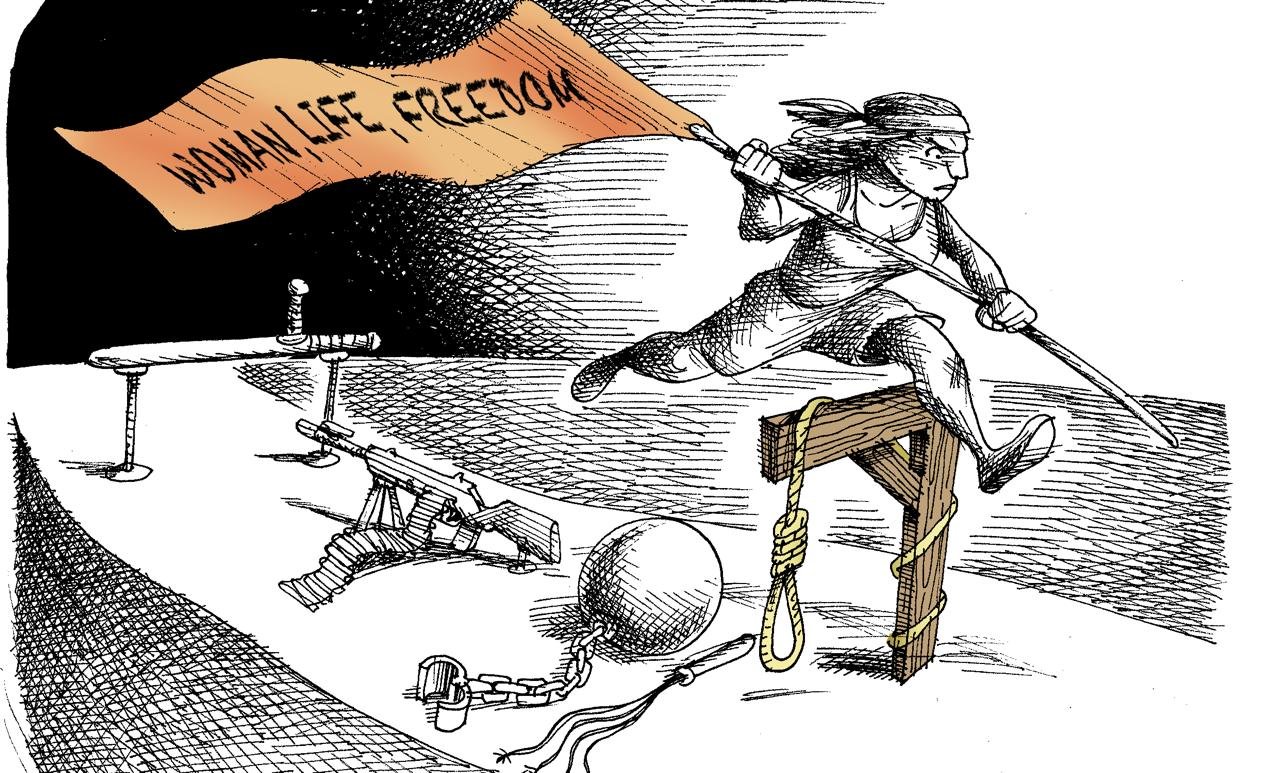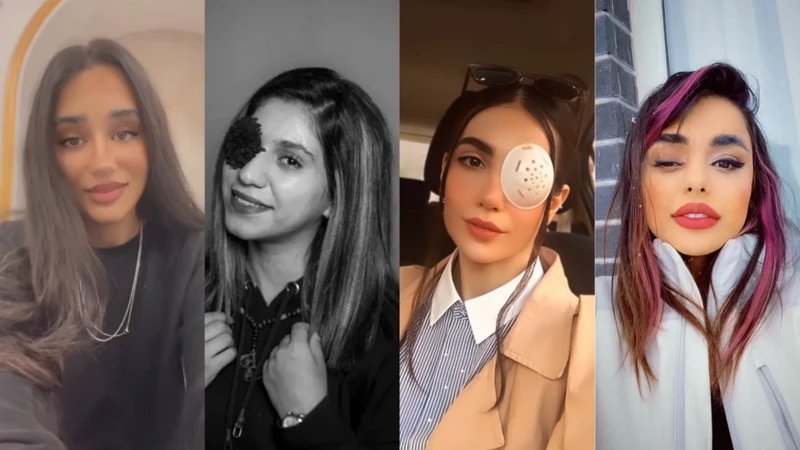
IranWire: The Voice of Persecuted Iranians
It was one of our citizen journalists who reported on the beating and hospitalization of 22-year-old Mahsa Amini in September 2022. The reporting led to the nationwide Woman, Life, Freedom protests that changed the course of history in Iran. We were also the first outlet to report the death of President Ebrahim Raisi – just two hours after his helicopter crash. Our reporting has been hailed by international media outlets such as the Washington Post, CNN, and Vice, as fearless and extraordinary.
Launched in 2013, IranWire is our flagship media outlet, published in six languages: Persian, English, Arabic, Kurdish, Azerbaijani, and Spanish. IranWire is a joint effort by professional Iranian journalists in exile and citizen journalists inside Iran.
We have trained more than 6,000 citizen journalists inside Iran. Our professional and citizen journalists provide the world with urgent news and information about the Iranian regime’s human rights abuses. Since its launch, IranWire has employed journalists forced into exile for their reporting, allowing them to continue in the profession they believe can make a difference for Iran. IranWire’s coverage of Iran’s politics, society, culture and economy has been used by hundreds of media outlets inside Iran and across the world.
Journalism and Documentaries
IranWire’s coverage of Iran includes several documentary films, books, reports, and short videos designed for social media. IranWire has exposed the Iranian government’s crimes, and the consequences of these crimes, more than any other media outlet or project. Our productions expose the realities of life and repression in Iran today in an unparalleled way. Our report on blinding as a weapon of war has been used by United Nations experts to investigate suppression of dissent in Iran. Our reports on hate speech and the oppression of religious minorities have been quoted by governments and organizations worldwide. And we are the only media outlet outside of Israel that educates its audience about the Holocaust.
Holocaust Education for Iranians
Our Holocaust education content counters antisemitism and other forms of hatred that are on the rise in the Middle East and around the world.
In 1994, Maziar Bahari became the first Muslim filmmaker to make a documentary about the Holocaust. The Voyage of Saint Louis told the story of more than 900 German Jewish refugees in 1939. Maziar’s dedication to educating people about the Holocaust and fighting antisemitism has continued to this day. Since 2017, IranWire has worked with the US Holocaust Memorial Museum through the Sardari Project, which produces resources to educate Iranian and Middle Eastern audiences on the reality of the Holocaust, in Persian and English. Maziar received the prestigious Elie Wiesel Award in 2020 for this work.
Through the Sardari Project, we have created hundreds of popular short videos and articles that have reached millions of Iranians. The success of the Sardari Project is extraordinary, given the fact that the Iranian government spends millions of dollars every year to produce antisemitic and Holocaust denial content, including books, animations, and the annual Holocaust Cartoon Exhibition. Most Iranians are regularly exposed to antisemitic content and Holocaust denial on state media and do not have any Holocaust education at school. Our work has generated several informal study groups in Iran, where various young people have used our texts and videos for their extracurricular studies.
Blinding as a Weapon of War
Blinding as a Weapon of War documents the systematic use of blinding as a tactic by Iranian security forces during the outbreak of the peaceful Woman, Life, Freedom protests in September 2022. The report details dozens of cases in which protesters and bystanders sustained severe eye injuries from metal pellets, rubber bullets, and tear gas, while also citing anecdotal evidence of thousands more victims who remain untreated due to security forces infiltrating public hospitals. Blinding as a Weapon of War uses an in-depth analysis of the medical, physical, and psychological consequences of blinding, drawing on medical records and expert consultations, to call for international action to hold Iranian authorities accountable. Blinding and other forms of grievous bodily harm are also featured in reports published by the United Nations Fact-Finding Mission, which was established to investigate human rights violations in Iran during the 2022-23 protests.
Fighting for the Rights of Baha’is of Iran
Baha’is are the largest non-Muslim religious minority in Iran. Since the 1979 Islamic Revolution, Baha’is have been treated as second-class citizens in Iran. Hundreds of them have been executed, thousands of them have been jailed and tortured, they have been denied educational and employment opportunities, their properties are confiscated or destroyed and they are arbitrarily detained. Iran’s official and semi-official media are also saturated with anti-Baha’i hate speech. IranWire has fought for the rights of the Baha’is since 2013, when Maziar Bahari produced To Light a Candle, the first major documentary about the plight of the Baha’is in Iran. The film started the Education Is Not a Crime campaign, which led to the creation of dozens of murals across the world celebrating the right to education. The campaign reached millions of people around the world who were not aware of the Baha’i community in Iran and the persecution of Iranian Baha’is. The documentary Changing the World, One Wall at a Time chronicles the campaign's successes.
In 2017, IranWire produced The Cost of Discrimination in South Africa. The film featured Dr. Iraj Abedian, the prominent Iranian-South African economist. It examined the similarities between the treatment of black and “colored” populations by the Apartheid regime and the treatment of Baha’is in Iran by the Islamic Republic.
In 2018, we produced Race Unity in America: An Oral History, which highlighted the efforts of more than 175,000 American Baha’is who have worked to end racism and promote race unity. During the COVID-19 pandemic, when physicians were desperately needed to help Iranians sick with the virus, we launched For the Love of Their Country, a series of articles and videos reviewing the lives of Iranian Baha’i doctors who have been jailed, forced into exile, or murdered in the past five decades.
Creative and Empowering Campaigns
Since its launch, IranWire has supported campaigns by advocates of freedom of expression, human rights, and labor rights inside Iran, and we have worked with partner groups and communities around the world on projects that, through videos, concerts, and public art, creatively highlight human rights issues in Iran affecting Baha’is as well as other religious and ethnic minorities.
Our campaigns have been particularly effective because they highlight the contribution of people to Iranian life and social progress inside and beyond Iran – whether Baha’is, or other groups – rather than solely focusing on persecution and suppression. Powerful storytelling and focusing on individual stories are the main reason for the strength of our films, articles, and murals.
Legal and Psychosocial Support for Victims of Persecution
IranWire takes a unique approach to journalism and activism by also providing legal and psychosocial support to the subjects of its reports and videos. For us, a labor activist who has been arrested during a strike, or a person sentenced to death accused of homosexuality or converting to Christianity, is not only a subject for an article or a film. We respect the individuals who are the subjects of our reports and offer them the legal and psychosocial support they need to recover from their ordeals.
We do this by working with a large network of Iranian lawyers outside Iran who assist victims of injustice as well as their families. One-to-one legal help is provided through conversations on our Legal Hotline on WhatsApp. We also publish videos on legal issues and host Instagram Lives to discuss the legal issues that activists face. We have provided legal help to more than 5,000 victims and their families.
In addition to legal help, we also provide psychosocial help by working with expert Persian-speaking therapists who live in the West. Iranian regime security and intelligence agents violently traumatize activists and their families: we therefore provide simple and safe methods of communication between Iranian therapists in the diaspora and the victims and their families in Iran. Additionally, we have weekly therapy advice on Instagram Lives and feature regular content on dealing with trauma.







